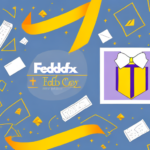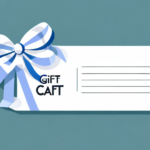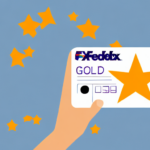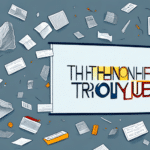Understanding Reward Fulfillment Definitions
Reward fulfillment is a critical component of any business or marketing strategy, playing a pivotal role in enhancing customer and employee loyalty. It involves delivering incentives to customers or employees in exchange for their loyalty, hard work, or desired behaviors. These rewards can take various forms, including cash, gift cards, loyalty points, or merchandise. According to a Forbes report, effective reward fulfillment can increase customer retention rates by up to 30%. In this article, we explore the fundamentals of reward fulfillment, its types, challenges, benefits, and best practices for implementing a successful reward fulfillment program.
The Basics of Reward Fulfillment: A Complete Guide
Reward fulfillment is the process of delivering promised incentives to customers or employees who have earned them. The execution of reward fulfillment can vary based on the type of reward and the company's chosen approach. Rewards can be fulfilled manually, through shipping physical items, or delivered electronically.
For tangible rewards like gift cards or merchandise, companies typically ship the items to the recipient's address. Conversely, digital rewards such as loyalty points can be delivered directly to the recipient's account electronically. Implementing a clear and efficient reward fulfillment process is essential for ensuring customer or employee satisfaction. This process often includes tracking the status of rewards, providing timely updates to recipients, and addressing any issues or concerns that may arise during fulfillment. Additionally, companies may opt to outsource their reward fulfillment to third-party providers to streamline operations and reduce costs.
The Importance of Reward Fulfillment in Business and Marketing
Reward fulfillment is instrumental in building and maintaining customer and employee loyalty. It encourages repeat behavior, enhances work ethic, and improves customer retention rates. Incentives such as discounts, gift cards, or cashback programs can motivate customers to make purchases they might not have otherwise considered. For employees, rewards provide a sense of recognition for their hard work, driving continued high performance.
Moreover, effective reward fulfillment can distinguish a business from its competitors. By offering unique and personalized rewards, companies create memorable experiences for both customers and employees, leading to positive word-of-mouth marketing and increased brand awareness. A study by eMarketer shows that 75% of consumers are more likely to remain loyal to brands that offer effective reward programs.
However, the efficacy of reward fulfillment hinges on the efficiency and accuracy of its execution. Delayed or incorrect rewards can lead to customer frustration and employee dissatisfaction, damaging loyalty and the company's reputation. Thus, investing in reliable reward fulfillment systems and processes is paramount to ensure rewards are delivered promptly and accurately.
Types of Rewards: Cash, Gift Cards, Points, and More
Companies have a wide array of reward types at their disposal to incentivize customers or employees. Traditional incentives include cash bonuses and gift cards, which offer immediate and tangible benefits. Points-based systems represent another popular approach, allowing users to earn points through their actions and redeem them for rewards later on.
In addition to these, companies may offer exclusive access to events, discounts, or customized merchandise. Emerging trends include experiential rewards, such as travel packages or adventure activities, providing recipients with unique and memorable experiences. These experiential rewards can have a more profound impact than traditional cash or gift card incentives.
Furthermore, some organizations have embraced social responsibility rewards, where a portion of the reward is donated to a charity or cause chosen by the recipient. This approach not only incentivizes the recipient but also promotes social responsibility and philanthropy, aligning with the values of socially conscious consumers and employees.
How to Choose the Right Rewards for Your Audience
Selecting appropriate rewards for a fulfillment campaign requires a deep understanding of the target audience and their preferences. Conducting thorough research and analyzing the audience's demographics, interests, and behavior patterns can help determine the most effective rewards. It's crucial to ensure that the chosen rewards fit within the budget and align with the company's values and overarching goals.
Another critical factor is the level of engagement required from the audience to earn the reward. Some rewards may necessitate more effort or participation, such as completing a survey or attending an event. Balancing the level of engagement with the value of the reward ensures that the audience remains motivated to participate without feeling burdened.
Timing also plays a significant role in reward fulfillment. Offering rewards too far in advance or too long after the desired action has been completed may diminish the campaign's effectiveness. Ensuring that rewards are delivered promptly helps maintain the audience's interest and engagement, reinforcing the desired behaviors.
The Role of Technology in Reward Fulfillment
Technology significantly enhances the efficiency and effectiveness of reward fulfillment processes. Software tools such as reward management systems and customer relationship management (CRM) platforms can automate fulfillment tasks, track user activities, and deliver rewards seamlessly. These technologies minimize errors, provide transparency, and ensure timely notifications and alerts to recipients.
Blockchain technology is also making inroads into reward fulfillment by offering a secure and transparent method for tracking and distributing rewards. Utilizing a decentralized ledger ensures that rewards are tracked from creation to distribution, preventing tampering or duplication. This enhances trust in the reward fulfillment process for both companies and recipients.
Additionally, data analytics and machine learning enable companies to personalize the reward fulfillment experience. By analyzing customer preferences and behaviors, companies can tailor rewards to individual needs and interests, resulting in higher engagement and satisfaction levels. According to a Forbes Technology Council article, personalized reward programs can increase engagement rates by over 40%.
The Benefits of Outsourcing Reward Fulfillment Services
Outsourcing reward fulfillment services offers numerous advantages, including time and cost savings, as well as access to specialized expertise. Outsourcing firms possess the necessary knowledge, experience, and tools to optimize rebate and loyalty programs, relieving customers or employees from the complexities of managing the process themselves. Additionally, these firms provide customer service support to handle inquiries and resolve issues related to reward fulfillment.
Moreover, outsourcing ensures a high level of accuracy and efficiency in the fulfillment process. Dedicated teams specializing in reward fulfillment guarantee that rewards are processed correctly and delivered on time, enhancing satisfaction among customers and employees. This reliability can significantly bolster a company's reputation and foster long-term loyalty.
Common Challenges in Reward Fulfillment and How to Overcome Them
The reward fulfillment process is not without its challenges. Common issues include delays in delivery, logistical complications, and errors in reward distribution. Such obstacles can strain the relationship between companies and their customers or employees. To mitigate these challenges, companies can engage third-party service providers, implement robust software tools, and offer comprehensive customer service support to promptly address any problems that arise.
Another frequent challenge is the lack of personalization in rewards. Recipients may feel disengaged if the rewards do not align with their preferences or needs. To address this, companies can offer a diverse range of reward options or allow recipients to select their preferred rewards. Personalization can also be enhanced by sending tailored messages or aligning rewards with recipients' interests and past behaviors.
Tips for Successful Reward Fulfillment Programs
Implementing a successful reward fulfillment program requires adherence to several best practices. Companies should begin by setting clear, achievable goals and effectively communicating these objectives to their audience. Choosing the right rewards that resonate with the target audience and ensuring transparency throughout the fulfillment process are also crucial.
Timely delivery of rewards is paramount. Delays or inaccuracies can lead to audience dissatisfaction and tarnish the company's reputation. Establishing a well-planned and efficient delivery system ensures that rewards are distributed on time and in optimal condition, fostering positive relationships with recipients.
- Set clear program goals and objectives.
- Understand and segment your target audience.
- Choose rewards that are meaningful and desirable to your audience.
- Ensure transparency and clear communication throughout the process.
- Implement efficient and reliable fulfillment systems.
- Gather and analyze feedback to continuously improve the program.
Measuring the Success of Your Reward Fulfillment Strategy
Evaluating the effectiveness of a reward fulfillment strategy is essential for determining its success and identifying areas for improvement. Key metrics to consider include return on investment (ROI), customer or employee satisfaction, and engagement rates. These metrics provide valuable insights into the program's performance and its impact on the company’s objectives.
Additionally, tracking and collecting feedback from customers or employees can offer a deeper understanding of their experiences with the reward fulfillment process. This qualitative data complements quantitative metrics, providing a comprehensive view of the program's effectiveness.
An important measure is the impact of the reward program on brand loyalty. A well-executed reward program can significantly enhance customer or employee loyalty, leading to repeat business and positive word-of-mouth marketing. Monitoring and analyzing the program’s influence on brand loyalty ensures that it contributes positively to the overall success of the business.
Case Studies: Examples of Successful Reward Fulfillment Campaigns
Examining successful case studies of reward fulfillment campaigns can provide valuable lessons and inspiration for developing effective strategies. Companies like Starbucks, Sephora, and Southwest Airlines have implemented robust reward programs that have significantly boosted customer and employee engagement and loyalty.
For instance, Starbucks Rewards allows members to earn points for every purchase, which can be redeemed for free drinks and food items. This program has been pivotal in increasing sales and customer loyalty, contributing to Starbucks' strong market position.
Sephora's Beauty Insider program enables members to earn points with each purchase, redeeming them for free products and exclusive experiences. This program has successfully increased customer engagement and loyalty, while also driving sales growth.
Southwest Airlines offers a loyalty program where members earn points for flights and purchases, redeemable for free flights and other perks. This program has enhanced customer satisfaction and encouraged repeat business, solidifying Southwest’s reputation for excellent customer service.
Best Practices for Implementing a Reward Fulfillment Program
To successfully implement a reward fulfillment program, businesses should adhere to several best practices:
- Define Clear Program Goals: Establish what you aim to achieve, whether it's increased sales, heightened customer loyalty, or improved employee engagement.
- Identify Your Target Audience: Understand the demographics, interests, and behaviors of your audience to tailor rewards that resonate with them.
- Choose Appropriate Rewards: Select rewards that align with your audience's preferences and your program goals.
- Determine an Effective Fulfillment Process: Develop a streamlined process for delivering rewards efficiently and accurately.
- Measure Program Effectiveness: Utilize relevant metrics to assess the program's impact and make data-driven adjustments as needed.
- Regular Monitoring and Analysis: Continuously monitor the reward fulfillment process to ensure its efficiency and address any issues promptly.
Integrating Social Responsibility into Your Reward Fulfillment Strategy
Incorporating social responsibility into a reward fulfillment strategy can enhance its effectiveness and resonate with socially conscious audiences. Companies can achieve this by aligning rewards with their corporate social responsibility (CSR) initiatives, utilizing environmentally friendly fulfillment processes, and supporting charitable causes that are meaningful to their target audience.
For example, offering rewards that include donations to environmental organizations or community projects allows recipients to feel that their incentives also contribute to positive societal impacts. This approach not only incentivizes recipients but also strengthens the company’s reputation for corporate responsibility.
Balancing Cost and Quality in Reward Fulfillment Solutions
Achieving an effective reward fulfillment solution requires balancing cost and quality. While it may be tempting to cut costs, doing so can compromise the fulfillment process's quality, leading to poor customer or employee experiences and diminishing the program's overall effectiveness. Investing in quality reward management systems and efficient fulfillment processes is essential for maintaining high standards.
Companies should aim to optimize both efficiency and cost-effectiveness, ensuring that the fulfillment process remains sustainable without sacrificing the quality of rewards delivered. Strategic investments in technology and partnerships with reliable fulfillment providers can help maintain this balance, ensuring the program's long-term success.
Conclusion
Reward fulfillment is a vital element of any marketing and business strategy aimed at boosting engagement and loyalty. It involves delivering incentives to customers or employees in exchange for their behavior, hard work, or loyalty. Implementing a successful reward fulfillment program requires defining clear goals, identifying the target audience, selecting appropriate rewards, establishing an effective fulfillment process, measuring the program's effectiveness, and balancing cost and quality. By adhering to best practices and understanding the various types, benefits, challenges, and solutions associated with reward fulfillment, companies can enhance engagement and build stronger relationships with their audiences.






















